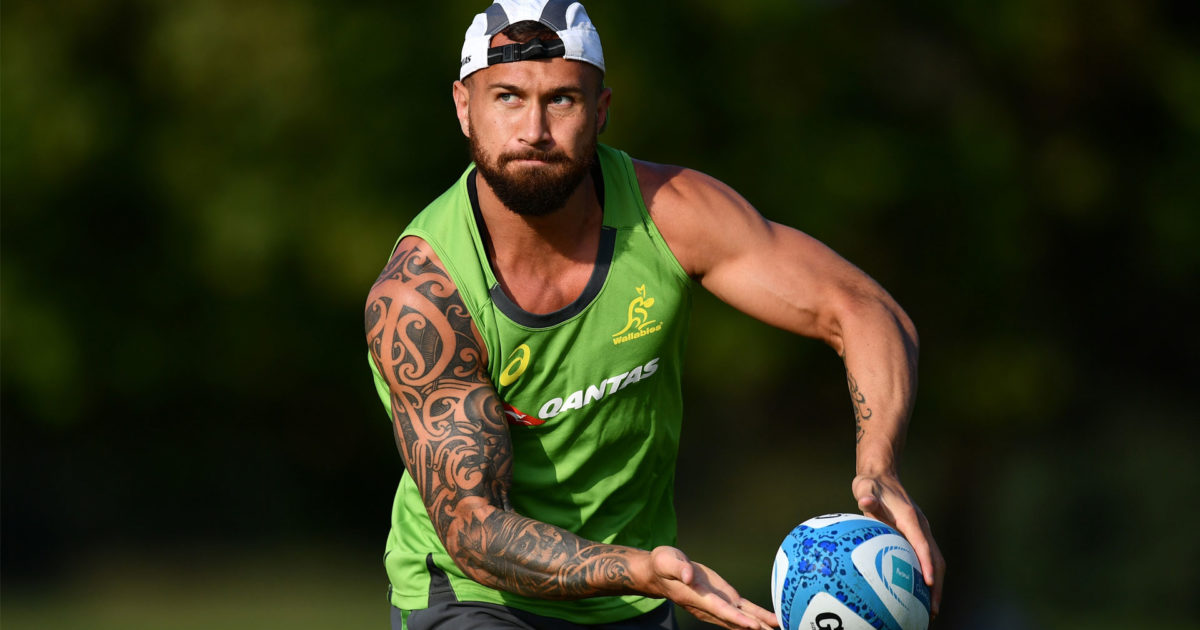'No Japanese team wants to keep Australian players forever'

The chairman of Japan’s new rugby union competition says he supports a model where Australian players contracted to Japanese clubs will be made more readily available for Wallabies duties.
The inaugural Japan Rugby League One, which replaces the Top League, will kick off on January 7.
JRLO chairman Genichi Tamatsuka has big plans for the league, including the potential for Japanese teams to be involved in a future cross-border competition with clubs from Australia, NZ or the Northern Hemisphere.
The big dollars on offer in Japan has resulted in a flurry of the world’s best players flocking to Japanese rugby in recent years.
That trend is expected to grow especially after the 2023 World Cup in France.
The quality of Japanese rugby has grown significantly, so much so Wallabies coach Dave Rennie had no qualms about plucking Japan-based Quade Cooper, Samu Kerev, and Sean McMahon to play for Australia this year.
The inclusion of Cooper during the Wallabies’ Rugby Championship campaign helped kick-start a rare five-match winning run for the Wallabies.
But Cooper, Kerevi and McMahon all pulled out of the Spring Tour after feeling they would be letting down their Japanese clubs if they went on tour instead of returning for pre-season training.
Tamatsuka believes Japanese clubs will end up benefiting by letting their international players feature more often for their respective countries
“Each player has options and we respect the players’ choice,” Tamatsuka said.
The 12th wave of inductees into the RugbyPass Hall of Fame has been revealed, the finest second-fives to ever grace the game getting recognised on Tuesday.
Have your say… GET VOTING! #HallOfFame #RugbyPasshttps://t.co/EzqGpvmshI
— RugbyPass (@RugbyPass) December 14, 2021
“If they should attend Wallabies games, we should support that. And them bringing back that experience to the league is really excellent.”
The Wallabies relaxed the foreign player eligibility rules this year as a stop-gap measure to deal with COVID-19 obstacles.
It remains to be seen whether Rugby Australia will extend the policy through to the 2023 World Cup in France.
The issue of Japanese rugby luring some of the best Australian players from Super Rugby has been a big talking point for several years.
But Tamatsuka’s right-hand man at JRLO, Hajimi Shoji, believes the situation is beneficial in the global market and that eventually more Japanese players will return the favour by playing in Australia or other countries around the world.
“No Japanese team wants to keep Australian players forever,” Shoji said.
“Our view is firstly importing players in a flexible manner, and on that, Japanese players should be grown so we can export our players to other markets.
“Therefore I think this kind of flexible moving and coming is the key to mutual success.”
Wallabies speedster Marika Koroibete, former NRL star Blake Ferguson and Kiwis Aaron Cruden and Ben Smith are among the big-name players who will feature in JRLO.
– Justin Chadwick
























































































